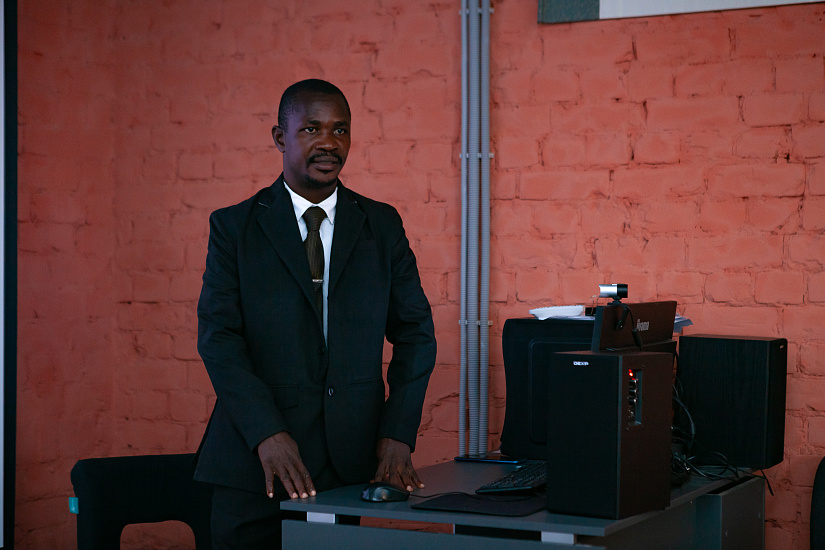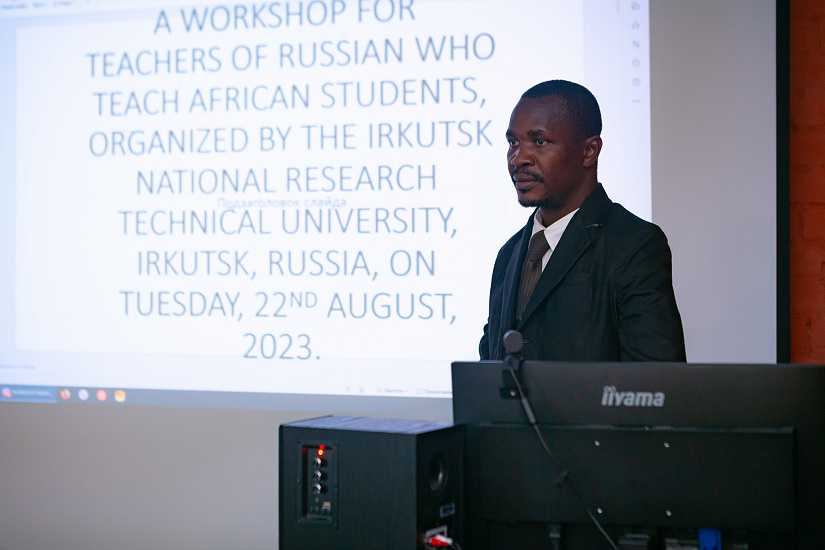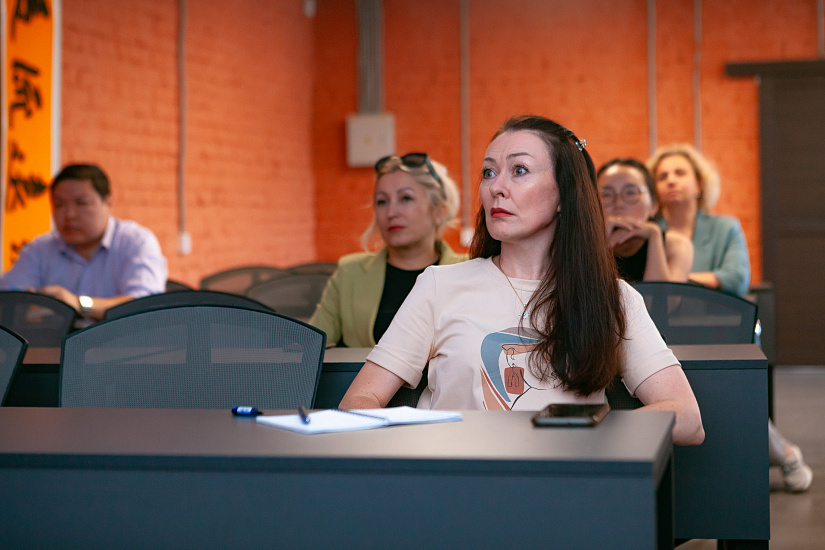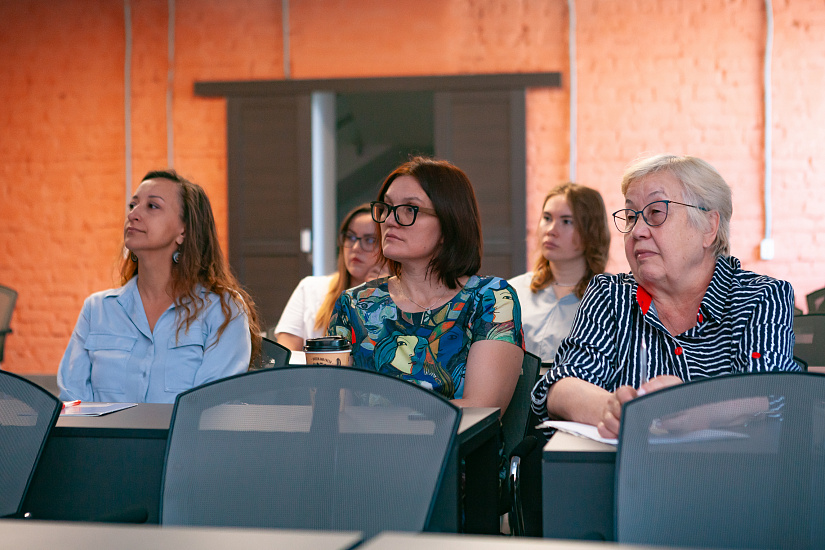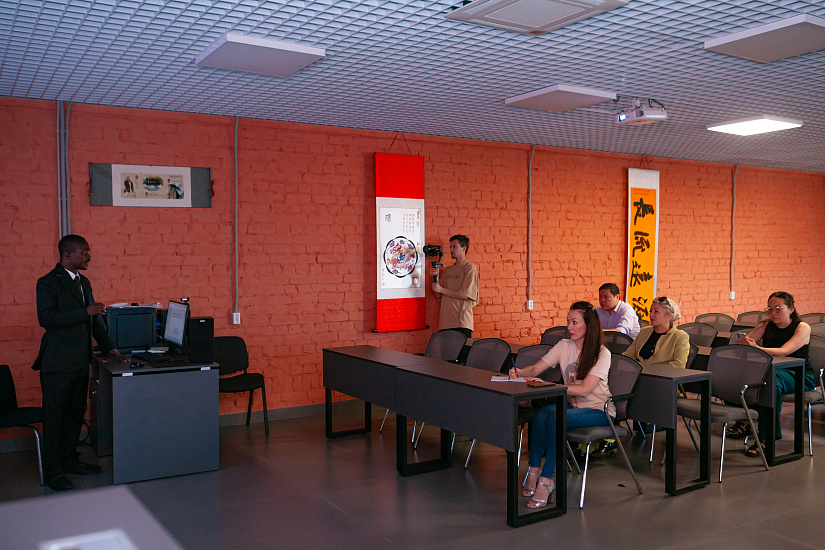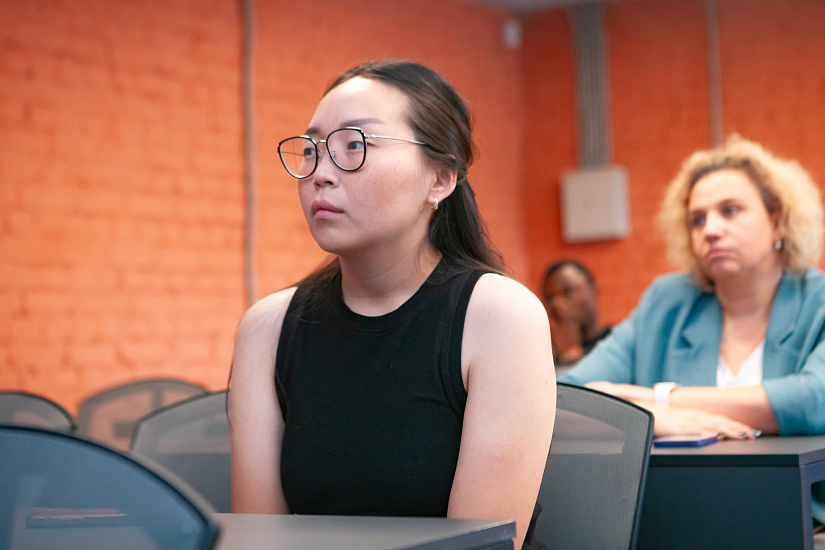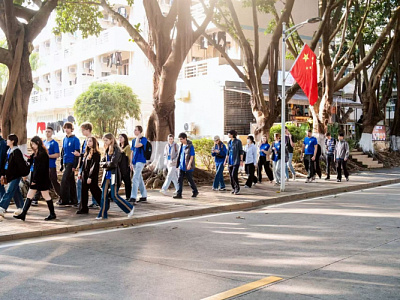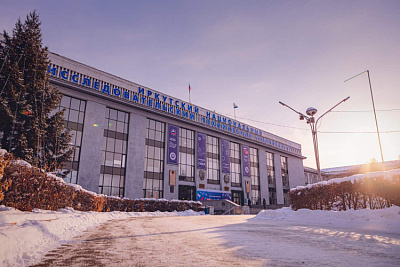Nigerian professor Adeola Oluwafeli discussed Russian language teaching methods with colleagues from INRTU
Adeola Oluwafeli, an employee of the Department of European Studies at the University of Ibadan (Nigeria), participates in the INRTU educational project "Summer School for Russian Language Teachers". At the end of the classes he gave an author's workshop for teachers of the Department of Humanities. He spoke about the study of Russian language in African universities, paying attention to the development of oral communication skills.
Adeola Oluwafeli has completed his master's degree and prepares to receive his PhD in English Language and Culture this fall. Years before, he became interested in spoken Russian and practiced with Alla Fawole, a senior lecturer at the University of Ibadan. Adeola now teaches Russian to a small group of students (10 students).
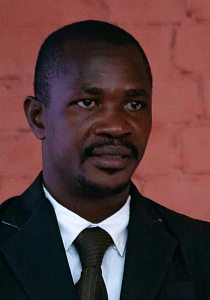
"In Nigeria, Russian is studied by students who want to build a career as a diplomat or pursue higher education in Russia. They are interested in agriculture, medicine and technical sciences. For me, as a teacher, it is important for students to know Russian at a high level. That is why I came to INRTU for the course. I was met by the hospitable university staff. During the course, I learned how to teach students Russian grammar and how to communicate online. My plan is to come back and immerse myself in the Russian-speaking environment and become a linguist," said Adeola Oluwafeli.
He also added that teaching a foreign language requires special attention to the target audience and exchange experiences between teachers. That is why Adeola held a session for fellow teachers from INRTU teaching Russian to students from Africa. The topic was mastering the rules of written and spoken language for professional communication.
Adeola Oluwafeli said that in Nigeria Russian language began to be actively studied in the second half of the last century. At that time African countries sought to strengthen intercultural ties with the Soviet Union, to adopt the experience of the republics in the development of agriculture. Familiarity with Russian culture was included in the curriculum of universities.
Nowadays, there is a large volume of methodical recommendations for Russian-speaking teachers. According to Adeola Oluwafeli, students have difficulties in phonetics and spelling, making mistakes in reading and writing. The ability to express thoughts correctly can be assessed by vocabulary and knowledge of grammatical rules and morphology. For example, students should pay attention to the free order of words in the Russian language, the presence of verbless (nominative) sentences.
In summary, Adeola Oluwafeli said that it is necessary to regularly motivate students to learn new words and rules, to create communicative situations in which it is possible to overcome the language barrier. Studying Russian as a foreign language, according to the professor, opens up many opportunities for African students.
REFERENCE:
In 2018-2022, 518 students from African countries studied at INRTU. Currently, 85 people from southern countries are mastering bachelor's and master's degree programs, specialization and postgraduate programs at the university. Students from Africa are most interested in studying at the Department of Humanities of the Baikal School of BRICS (108 students).
Irkutsk National Research Technical University is expanding cooperation with universities in Tanzania, Kenya, Ethiopia, Egypt, the Republic of South Africa (RSA) and Nigeria.
